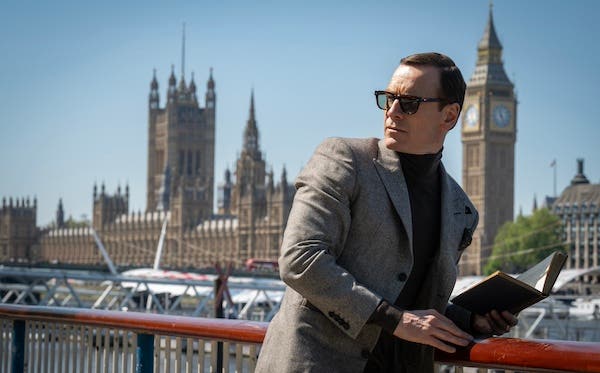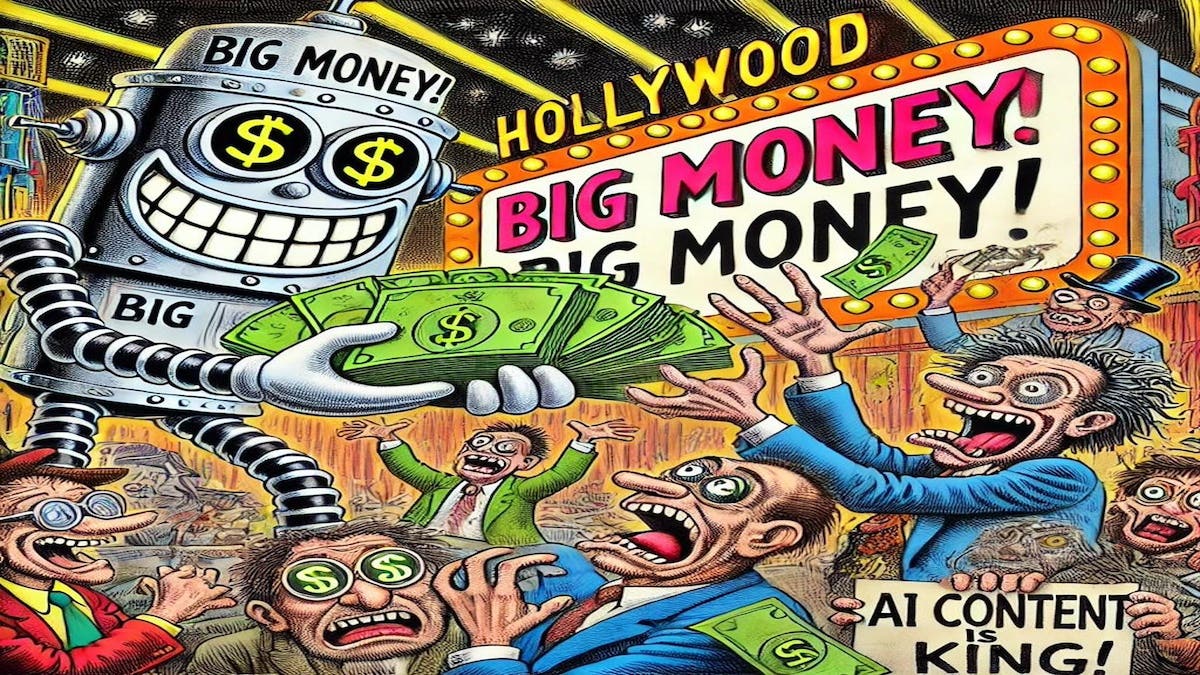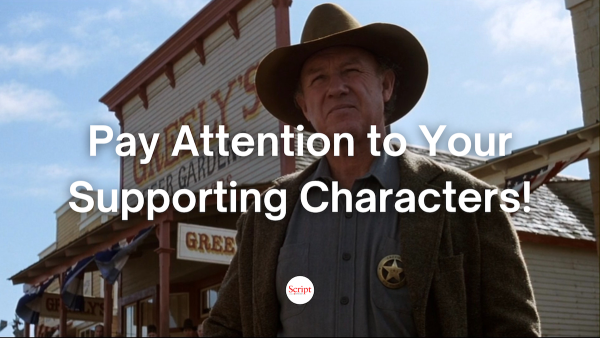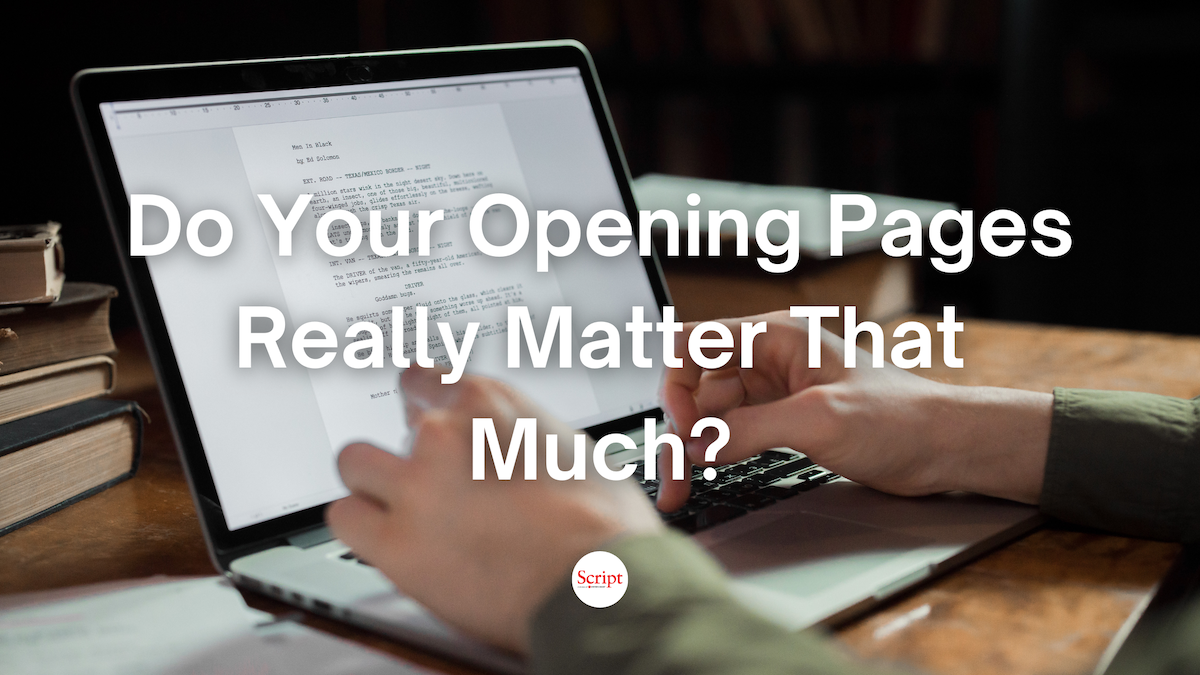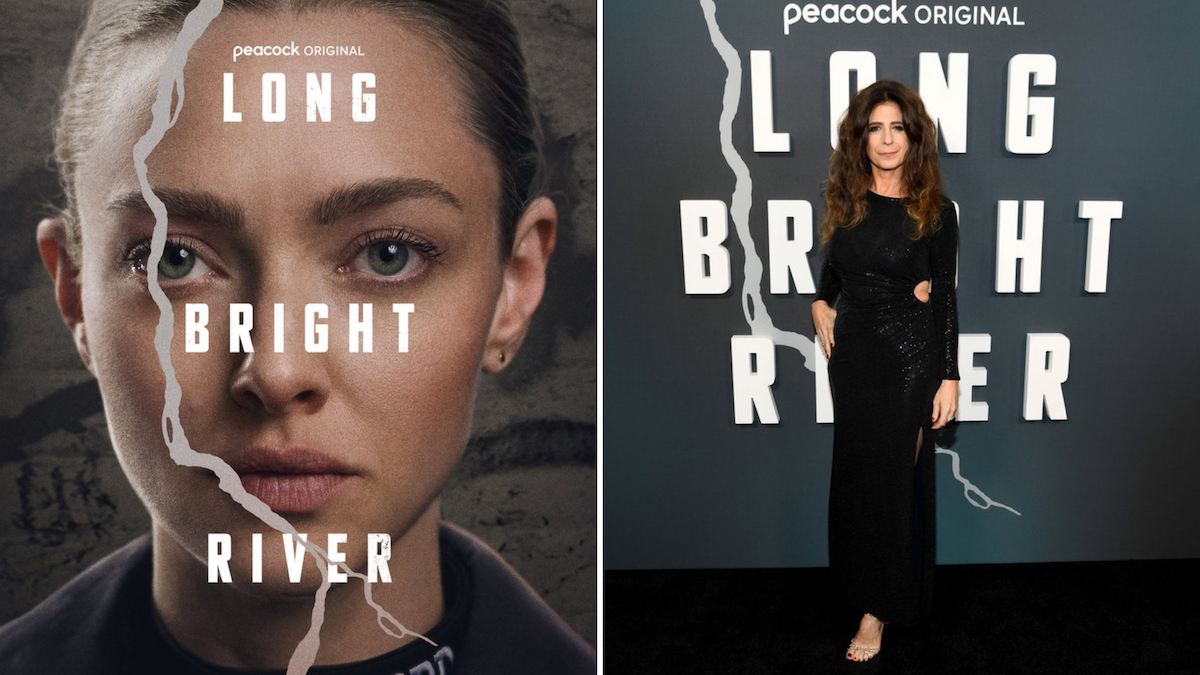SCRIPT GODS MUST DIE: Collaboration and the Art of Creative Disagreement
Paul Peditto discusses collaboration and how disagreeing is sometimes a good thing.
Paul Peditto authored the book The DIY Filmmaker: Life Lessons for Surviving Outside Hollywood, wrote and directed the award-winning film, Jane Doe, starring Calista Flockhart and has optioned multiple scripts to major companies. He teaches screenwriting at Columbia College-Chicago, has professionally consulted on thousands of screenplays since 2002. Follow Paul at www.scriptgodsmustdie.com and on Twitter@scriptgods.
I look across the street. “Wow, what a beautiful elm tree.”
You look across. “What elm?”
“The tree. Right there.”
“What are you looking at?”
“The freakin’ pretty tree! The leaves. The October golden leaves scattered all over the place! Are you blind?”
“I see a fireplug, man. That dog’s gonna… yeah, saw that coming.”
When is a pretty tree not a pretty tree? When your collaborator says it’s not. This is Creative Disagreement, or creative conflict, or being up shit creek. It means you’re not seeing the same thing. When a Hollywood director or actor leaves a movie, they speak of “creative differences.” That’s code for two artists—a writer-director, director-producer, director-actor, whathaveyou, just not seeing it the same way.
I’m likely in the minority when I say, This is not a bad thing. There is an art to creative disagreement. On a practical level, if my collaborator and I are too far apart to work together, the sooner we learn that, the better. On a deeper level, the notion of you and I agreeing on every direction as being a good thing is highly overrated. I don’t want a collaborator agreeing with my every notion. I want to be challenged. I want to be pushed to a deeper level, to places I never considered the first time around. Only way that happens is if you’re working with someone who:
- You respect.
- Is touched-by-God talented.
- Has a mule-thick skin, is a workaholic, brings a different POV, or
- Works with a similar process/method as yours.
Don’t underestimate this process of collaboration. How exactly are you planning to share the load? Are roles and responsibilities clear and up front? Expectations are important, so set realistic goals because every collaboration is different. If we’ve worked together for years on multiple projects we’ve probably got our “system” worked out... Our creative shorthand. For a co-writer situation, ask, Will we write every day? Will there be weekly page goals? Do I write the outline and you write the dialogue? Do I write the first draft and you write the polish? If we’re not working from the same city, how are we communicating? Skype? Google Docs? Phone calls? Emails?
When you look at writer credits in movies you might see: Written by Joe Blow & Jim Blow. The ampersand means the writers collaborated. If it says: Written by Joe Blow & Jim Blow and Jack Jones, it means the Blow Brothers collaborated and Jack Jones contributed his own draft, independently.
With a Studio movie or big-budget Indie, you’ll make six-figure $$$ when you sell the script. The downside is you’ll likely have little input on who your collaborators will be. DreamWorks is not going to need your permission for picking a director for the movie. With micro-budget, as the writer, there’s a damn good chance you’ll have a say in who the director will be. Hell, odds are the director/producer is you. Choose your partners well and don’t fear creative disagreement. Find partners who will not be yes men and push the project to a new level.
I’ve been fortunate to have some wonderful collaborative relationships, both in theater and film. I started in theater writing plays for my brother Chris and his theater company, igLoo. Having a brother as a collaborator can be tricky, but early on we were seeing it the same. I’d write the thing and he'd bring it alive on the stage, acting, directing or producing a half-dozen of my plays. We’re Sicilian, so people mistook our conversation for arguing. We’d be agreeing on a point and still screaming at each other. People didn’t get it, but we did. Though even with brothers collaboration doesn’t always work out smoothly…
He recently asked me to co-write an adaptation he was working on, The End Of It All by Ed Gorman. It’s the story of a geeky high-school loser who gets into a traffic accident, has a revolutionary plastic surgery procedure, and comes back to his high-school reunion looking like George Clooney. Complications ensue when he meets the woman he lusted after in school and she falls for him, while he falls for her 18 year-old daughter. This leads to murder and mayhem. Chris had written a 55 page first draft. It needed fleshing out. He saw this as a neo-noir drama.
I saw it as preposterous. It could never play straight up as a drama. It was clearly a black comedy/thriller. It had a Blood Simple feel, maybe with a touch of Fatal Attraction. I outlined the piece and got the ok to proceed from Chris (which he later denied). It is far better to work out the kinks in the outlining stage before you start writing the thing. Yes, it means more time up front but it pays off, back end. Outlining took a few weeks, writing it took no more than a month. It was vastly different from Chris’ draft. 90% of his dialogue was dropped. The genre, the tone, and world were changed. Remember now, as far as I knew these changes were exactly as outlined and approved by brother Chris.
Chris read it and sent back an email. He was disappointed. To the max. He didn’t understand my take on it. Why had I abandoned the drama? I pointed out that he approved my beat sheet. He didn’t remember the email (being the busy HBO producer he was) and disagreed with where I took the script. He was seeing it as a drama and I was seeing a black comedy/thriller. When you can’t even agree about the genre with your collaborator… You’re pretty much screwed. He took a second pass at it. While I cut 90% of his stuff in Draft 2, he cut 90% of mine in Draft 3, changing the world back to his drama. The project now sits, a fabulous door stop.
My brother was seeing a pretty tree and I was seeing the fire plug with the dog pissing on it. Or I was seeing the tree and he was seeing the…
You get the point.
Doesn’t really matter who was right… or if there even was an objective right.
Recently I’ve worked more with Boris Wexler. Boris, co-writer of our book The D.I.Y. Filmmaker. The project was Chat, a $44K micro-budget feature which I’ve written about here before. A rough sketch of roles was established early: Boris was both Producer and Director. Paul was Producer and Writer. We started talking story early in 2012. The script was outlined (a 15 page “beat sheet” sketched out). April, 2012 the first draft of the screenplay finished (Boris with detailed story notes, me writing the script). August, 2012 (three drafts and thousands of note-filled emails later) the shooting script was finished. November, 2012, casting commenced. We “crewed” up.
I wrote copy for our Kickstarter campaign and Boris shot and edited the pitch video. We were successfully funded 30 days later. March, 2013. Fully into pre-production. April-May, 2013—Principle photography. Multiple production drafts (Blue-Green-Yellow). Changes to the “locked” white draft necessitated by set conditions, actor improvisations or “director imperative” (meaning Boris, as director, with the ultimate power for what makes it to the screen or not, availing himself of that power).
Point is, two plus years later, Boris and I knew each other rather well. R a t h e r. I’m guessing poor Boris knew how I’d react to each one of his critical emails long before he sent it to me. I’m predictably Southern Italian. That means generally loud, overly detailed (15 pages of single-spaced time code notes? When no one else even gives one page?) And, of course, I’m always right (OK, 95% right) warning Boris of the grave consequences should he not use every one of my notes.
Boris is French. He groans when folks point that out. He also likes Chipotle, his golden retriever, cigarettes, and scuba diving in Asia. After two years with him on this project, I know all about the dude. We work well together because we are both workaholics, perfectionists, passionate, patient, and pragmatic. Bottom line? Boris saw Chat much the same as I did. If he didn’t, we would never have finished it together. One of the two of us would have walked.
With this project and Boris as director, he had final say on the final cut. But he wasn't a Dictator. He was pragmatic enough to gather opinions of an inner circle. I would suggest, Good Reader, you consider doing the same for your movie. Many times Boris reversed his initial choices based on the feedback he was getting. This is his greatest strength and a good lesson for beginning directors. Never walk into a room so sure of yourself you’re not at least willing to listen to other ideas.
Keep it open, keep it collaborative.
- More articles by Paul Peditto
- BALLS OF STEEL: How Do Writing Partnerships Work?
- Habits of Highly Successful Screenwriters: Be Collaborative
Writing Partnerships: The Essentials to Finding Your Match
PAUL PEDITTO is an award-winning screenwriter and director. His low-budget film Jane Doe starring Calista Flockhart won Best Feature at the New York Independent Film & Video Festival. He just finished production (Nov. ’24) on Dirty Little Secrets, a $350,000 dollar Indie feature shot in Chicago. Six of his screenplays have been optioned including Crossroaders to Haft Entertainment (Emma, Dead Poets Society). He recently wrote and produced the micro-budget feature Chat, currently distributed on TUBI, iTunes, YouTube, and Dish Network by Gravitas Ventures.
Over the past decade, Mr. Peditto has consulted with over 1,000 screenwriting students around the world. He has been a Featured Speaker at Chicago Screenwriters Network, Meetup.com, Second City, and Chicago Filmmakers. He has appeared on National Public Radio and WGN radio, and reviewed in the Chicago Tribune, Chicago Sun-Times, L.A. Times, and the New York Times.
Peditto is an adjunct professor of screenwriting at Columbia College. Under his guidance his students have written and produced films that have appeared in major film festivals, have semi-final placings at Nicholl Fellowship, and have won awards and screened at film festivals around the country. His new book, The DIY Filmmaker: Life Lessons for Surviving Outside Hollywood is available through Self-Counsel Press on Amazon. Follow Paul at www.scriptgodsmustdie.com and on Twitter @scriptgods.


